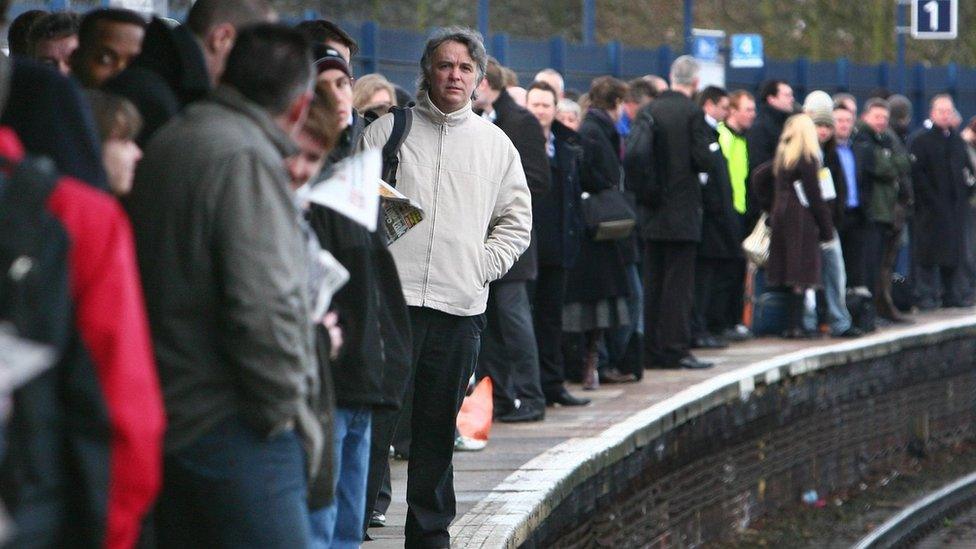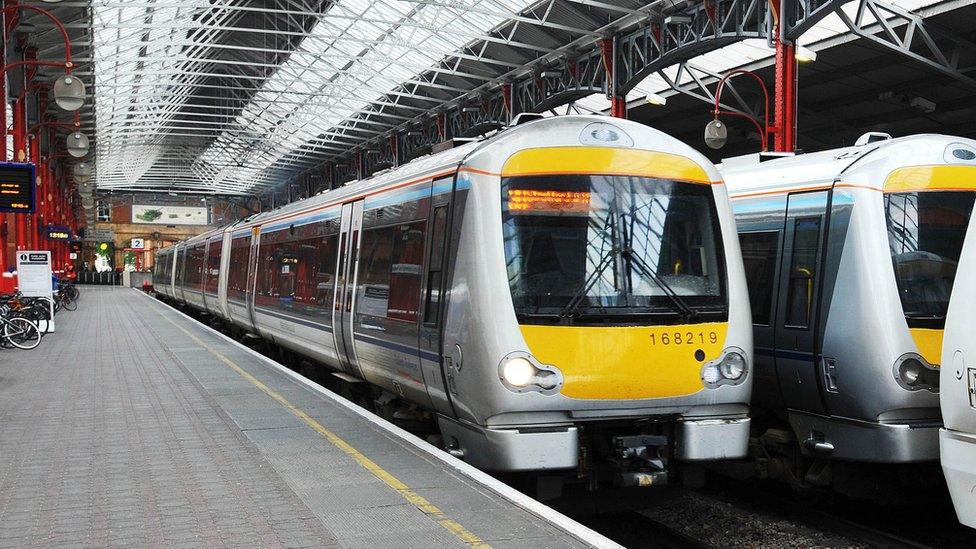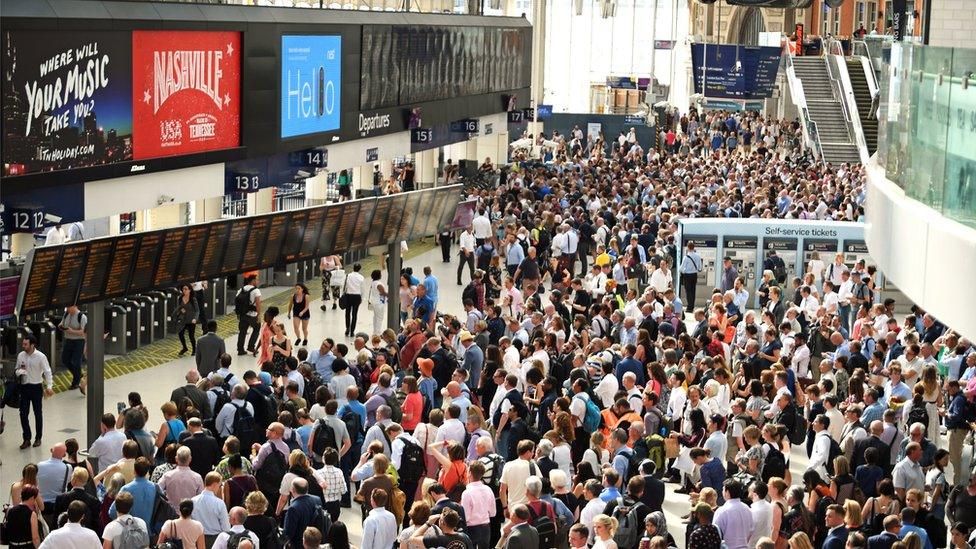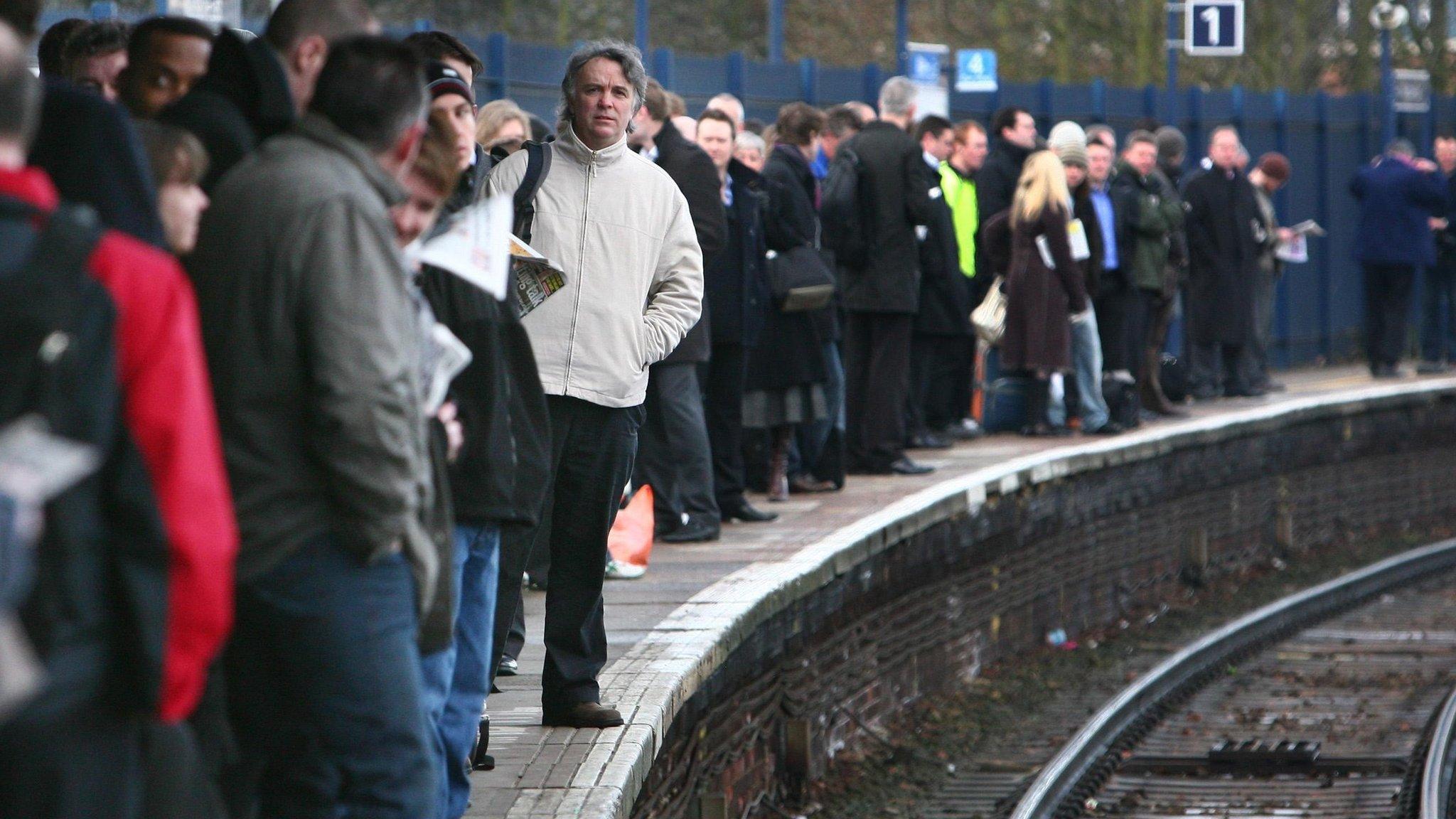Check your train time - new timetables to begin
- Published

Rail passengers are being urged to check their train times before they travel from Sunday as a new winter timetable comes into effect.
The plan is that journey times will be cut, services increased and new routes added across the country, after infrastructure and carriage investment.
Train timetables are changed twice a year, in May and December.
When train timetables were changed in May last year, chaos ensued, with massive delays and overcrowding.

Industry body the Rail Delivery Group (RDG) said the new timetable change would mean 1,000 extra weekly services, on top of 4,000 introduced over the past two years.
The launch of the May 2018 timetables saw services crippled in parts of the North and the South East, with blame attributed to Network Rail, train operators and the government.
Anthony Smith, chief executive of the passenger watchdog Transport Focus, said: "This time around, passengers need the rail industry to deliver a smooth set of timetable improvements - so they can reliably use both new and existing services.
"Many passengers should have a greater choice of services with more seats as result of these changes. However, there will also be some who lose out, with fewer or slower services."
'Teething problems'
Guy Dangerfield, Transport Focus head of strategy, said: "There are lots of timetable improvements which should bring great benefits to passengers in terms of capacity and journey time improvements.
"Clearly, when you change anything, there's a degree of risk, but there isn't the sort of late chopping and changing of the plans which led to the problems in May 2018."
The RDG sought to reassure passengers over the upcoming timetable, stating that the industry had put "years of work into drafting, consulting and planning for these changes".
Robert Nisbet, the organisation's director of nations and regions, urged passengers to check their journey details in advance, as many train times are changing.
He said: "Train operators and Network Rail will be working together to run a reliable service and respond quickly to any teething problems as people get used to the change."

Sunday will see the biggest timetable change on the Great Western Railway network since the 1970s, taking advantage of Network Rail's electrification of the line between London and Bristol, and the operator's new intercity express trains.
Non-stop trains between London Paddington and Bristol Parkway will have journey times as short as one hour and eight minutes, shaving 12 minutes off the existing quickest services.
Fastest journey times between the capital and Bristol Temple Meads - near the centre of the city - will be cut by 17 minutes to one hour and 19 minutes.
The frequency of trains on this route will be increased from two an hour to three during the morning and evening peaks.
There will be major improvements on the ScotRail network, with additional services in north-east Scotland and extra seats between Edinburgh and Glasgow.
A new station, Robroyston, will open in north-east Glasgow on the line between Queen Street and Cumbernauld.
Other operators introducing new services are Greater Anglia, London North Eastern Railway, Northern, TfL Rail, Thameslink, Transpennine Express (TPE), Transport for Wales, West Midlands Railway and London Northwestern Railway.
The Maesteg and Conwy Valley lines in Wales will see Sunday services for the first time.
TPE admitted last week that the frequency of its new direct Liverpool-Edinburgh trains will initially be lower than the planned hourly service.
The firm blamed a maintenance backlog and infrastructure problems for delaying crew training, as well as the late delivery of new trains.
- Published11 September 2019
